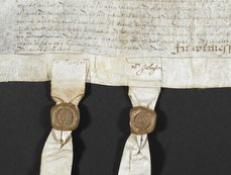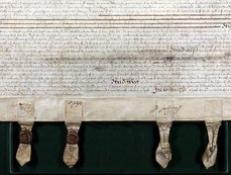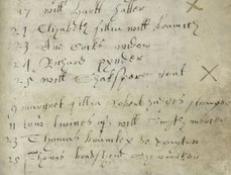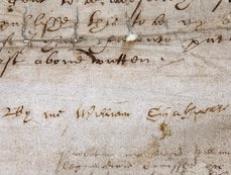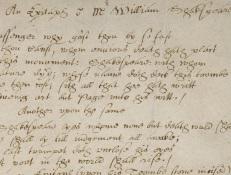To view a sortable list, please visit the Resource
All Documents
1611
This book is the only surviving play manuscript used by Shakespeare’s company, the King’s Men. It is also the only surviving copy of the play itself, which became known as The Second Maiden’s Tragedy.
1611
In the last year of his life, the astrologer Simon Forman (1552-1611) recorded his impressions of the plots and lessons of four plays he saw at the Globe, three of which were by Shakespeare: Macbeth on April 20, 1611 (he mistakenly writes 1610), a production of Richard II by an
March 11, 1613
In March 1613 William Shakespeare and three associates agreed to purchase the Gatehouse of the former Dominican priory in London known as “Blackfriars” from Henry Walker for the sum of £140. The indenture of bargain and sale is dated March 10.
June 30, 1613
The Globe went up in flames on June 29, 1613, a newsworthy event mentioned in numerous contemporary accounts. In his weekly letter to his former student Sir Thomas Puckering, Thomas Lorkin notes that it burned down during a performance of Shakespeare’s Henry VIII.
March 10, 1613
In March 1613 William Shakespeare and three associates agreed to purchase the Gatehouse of the former Dominican priory in London known as “Blackfriars” from Henry Walker for the sum of £140. The indenture of bargain and sale is dated March 10.
March 10, 1613
In March 1613 William Shakespeare and three associates agreed to purchase the Gatehouse of the former Dominican priory in London known as “Blackfriars” from Henry Walker for the sum of £140. The indenture of bargain and sale is dated March 10.
April 25, 1616
According to the inscription on the wall monument erected in his memory, Shakespeare died on April 23, 1616 and was buried, as would be normal practice at that time, two days later.
March 25, 1616
William Shakespeare’s last will and testament provides one of the richest surviving accounts for understanding his familial and professional networks.
1623
Three epitaphs to Shakespeare are copied onto the last leaf of this First Folio. The first is from Shakespeare’s monument in Holy Trinity Church.
circa 1623
In 1623, the antiquarian Sir Edward Dering turned the two parts of Henry IV into a single play, cutting 3000 lines from both. Dering’s adaptation is the earliest known manuscript copy, and first documented amateur performance of, a Shakespeare play (or rather, parts of two plays).



